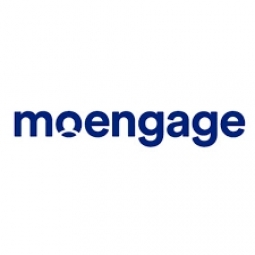技术
- 网络安全和隐私 - 入侵检测
- 平台即服务 (PaaS) - 应用开发平台
适用行业
- 电子商务
适用功能
- 质量保证
- 销售与市场营销
用例
- 行为与情绪追踪
- 牲畜监测
服务
- 测试与认证
关于客户
Bukalapak 是印度尼西亚最大的电子商务公司之一,提供线下到线上的解决方案,使中小型企业能够将其产品带到网上。该公司最初是一个在线市场,现已发展到印尼企业可以轻松在线销售商品和进行交易的水平。 Bukalapak 拥有庞大的客户群,希望开展批量营销活动,同时确保信息不会被淡化。该公司的目标是利用个性化的客户参与来提高转化率,并跟踪和分析客户参与活动,同时根据行为管理客户细分。
挑战
Bukalapak 是印度尼西亚最大的电子商务公司之一,由于缺乏可以创建、跟踪和分析活动的综合平台,其客户参与度大幅下降。该公司希望开展个性化活动来提高客户参与度,但这需要深入了解客户行为以及根据客户偏好对客户进行细分的能力。我们面临的挑战是找到一种解决方案,能够提供这些功能并帮助 Bukalapak 开展更有效、个性化的营销活动。
解决方案
Bukalapak 求助于 MoEngage 平台来解决他们的挑战。 MoEngage 提供了一个完整的客户参与平台,可以自动化参与活动并允许进行客户分析和细分。 Bukalapak 使用该平台来分析客户行为并开展更加个性化、符合情境的营销活动。该品牌利用 MoEngage 的 A/B 测试、细分、动态消息传递和分析等功能来了解哪种类型的内容更能与客户互动,分析客户活动、细分用户并定制他们的互动消息。 MoEngage 的 AI 驱动的消息优化 DPM(动态产品消息传递)使 Bukalapak 能够根据客户偏好和操作提供不同的内容变体。
运营影响
数量效益

Case Study missing?
Start adding your own!
Register with your work email and create a new case study profile for your business.
相关案例.

Case Study
Digital Transformation of Atlanta Grout & Tile: An IoT Case Study
Atlanta Grout & Tile, a Tile, Stone & Grout restoration company based in Woodstock, Georgia, was facing challenges with its traditional business model. Despite steady growth over the years, the company was falling behind the web revolution and missing out on the opportunity to tap into a new consumer base. They were using independent software from different vendors for each of their department information and workforce management. This resulted in a lot of manual work on excel and the need to export/import data between different systems. This not only increased overhead costs but also slowed down their response to clients. The company also had to prepare numerous reports manually and lacked access to customer trends for effective business decision-making.

Case Study
IFFCO Boosts IT Performance and Innovates Agriculture with Oracle Cloud
Indian Farmers Fertiliser Cooperative Ltd. (IFFCO), the world’s largest manufacturer and marketer of fertilizers in the cooperative sector, was facing several challenges in its quest to innovate and improve the livelihood of farmers in India. The organization had recently launched a new product, nano urea, which brought new demands to IFFCO’s cloud computing needs. The organization needed a reliable cloud vendor to support the processes of 6–7 new manufacturing plants during the upcoming year, enhancing its production capability 300–350 million bottles of nano urea to meet increasing demand. IFFCO’s cloud adoption was driven by a need to innovate. The organization wanted capabilities for a dynamic business that can adapt to the changing needs of the market while growing fast. However, it was inhibited by rigid on-premises data center deployments and the overhead of maintaining legacy systems. IFFCO wanted to apply the elasticity and availability of cloud for improving overall performance of applications at lowest possible operational overhead. Lastly, IFFCO needed to provide the benefits of its technology to all its stakeholders, including employees, members, transporters, and farmers, some of whom have limited literacy. To accommodate all stakeholders, IFFCO wanted to add a voice interface to its applications.
Case Study
7-Eleven Philippines Enhances Customer Support with Freshdesk
7-Eleven Philippines, a pioneer of 24-hour convenience stores in the country, was facing challenges with its customer support system. The customer support was outsourced to an external vendor, which resulted in limited visibility into customer query patterns and performance metrics. The company had no transparency into the vendor's analytics and could not validate their reports. They also had no visibility into the volume of calls, number of abandoned calls, etc. due to the use of the vendor’s telephony solution. This lack of control and visibility into customer support led the team to decide to bring the entire function in-house. They began exploring helpdesk solutions that would enable them to build a strong in-house support team.

Case Study
Cloud4com: Delivering Efficient and Secure SAP HANA Cloud Services
Cloud4com, a leading provider of IT infrastructure and data center services, recognized the challenges and costs companies face when upgrading their on-premises infrastructure to meet the demands of SAP HANA in-memory technology. With the introduction of SAP HANA and SAP's decision to end support for all other databases from 2025, Cloud4com saw an opportunity to expand its services to a larger customer base. However, SAP HANA is a resource-intensive technology that requires companies to deploy powerful and costly hardware platforms. Businesses often overspecify the hardware, resulting in underutilization within the software's lifecycle. To capitalize on the opportunity presented by SAP HANA, Cloud4com aimed to create a cost-effective cloud platform for HANA and began working on obtaining the SAP Tailored Datacenter Integration (TDI) certification. A critical element was selecting the right operating system that would meet SAP’s standards and maximize the availability and performance of their customers’ SAP landscapes.
Case Study
BrewDog's Customer-Centric Approach in Times of Uncertainty
BrewDog, a Scottish-born craft beer business, faced a significant challenge during the COVID-19 pandemic. With their bars closed, the company saw a surge in online orders and customer inquiries. The customer service team, which handles all e-commerce customers and general brand-related queries, was overwhelmed with the sudden increase in activity. The team was dealing with up to 2000 tickets a day during the lockdown, a significant jump from the usual 150-200 tickets. The fast-paced nature of BrewDog's operations, with new projects and initiatives launching daily, further complicated the situation. The company's existing processes, which were fairly manual, were not equipped to handle this surge in volume. The challenge was to quickly adapt and streamline their customer service operations to continue providing excellent service during these uncertain times.

Case Study
Global Timeshare Company Accelerated Its Digital Marketing and E-commerce Engine
The client's go-to-market teams weren't accustomed to attracting new buyers in the digitally networked world. These prospects come from an evolving demographic — millennials and Gen Z who were increasingly adopting the new ways of evaluating options online and making reservations.There were three key challenges that the client was facing.Outdated and aging systems (legacy core)Inadequate web presence and e-Lack of predictive customer understanding and analytics







